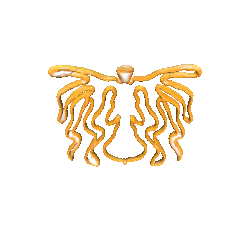

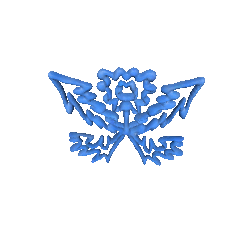
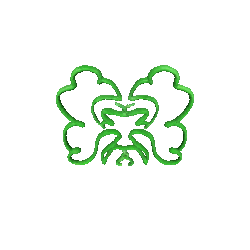
| MONDAY // 09.09 | TUESDAY // 10.09 | WEDNESDAY // 11.09 | SATURDAY // 14.09 | MONDAY // 16.09 | |
|---|---|---|---|---|---|
| 16.00H | Within Affectionate Cycles | Phantom Records | Invasive Species | Shifting Form, Shaping Memory | |
| 19:00H | Archival Shifts: Rewinding and Resuming History | A Reflection on Notre Musique Today | Hadithi Hadithi | Berlin: Normative & Counter Narratives | |
| 22:00H | Shift Shapers Party |
.
.
.
.
PROGRAMME“Within Affectionate Cycles” delves into different phenomena of life, its cycles, and its ultimate destination, connected by the films’ central interest in coming to life and aging. Yet, each narrative takes a different path in its exploration of individual stories and bridges them with ways of survival for what is beyond individuality. Whether it is parallels between joy and weight of birth or between various bodies’ processes of regeneration, the coexistence of vulnerability and resilience of the living are present in every film, as much as the troubles with the social conditions we endure. The Bath takes us on an immersive journey through childhood’s states of perception, exploring the materiality of water in parallel with the materiality of film, while When Birds Lay Down depicts a conversation between two characters who address the idea of death through topics such as past lives, dreams or the emergence of digital consciousness. In Amarandos, cultural and intimate narratives bring forth collective questions around vulnerability, resilience, and survival affectionate strategies in its explorations of the director’s grandmother’s dealing with Alzheimer’s. Similarly, finding parallels between a multi-generational, LGBTQ+ housing project and the study of old-growth forests, Wood for the Trees testifies to the ecological importance of diversity and care. To close the program, Stochastic Datasets invites us to a fictional podcast in an alternative future in Germany, in which two characters debate on health and AI, collective struggles and activism, the future of social media, and energy shortages among others.
With the participation of filmmmakers!
The Bath
Maria Inês Gonçalves, Portugal/Spain, 2022, Portugese, 8 min.A mother bathes her baby, while other children play with the water coming from the sprinklers. Between intimate and familiar images, something begins to unravel: spaces are transformed, allowing trauma to surface. Starting from a personal memory and from the notion of water as a vital but also potentially destructive substance, "The Bath" takes us on an immersive journey through childhood’s states of perception, exploring the materiality of water in parallel with the materiality of film.
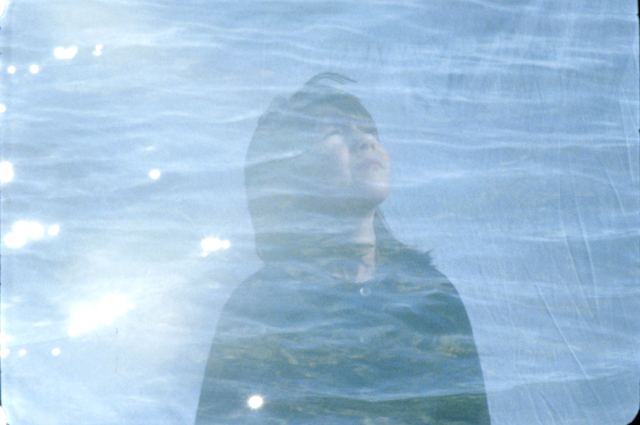
When Birds Lay Down
Samir Nahas, USA/Switzerland, 2023, English, 16 min.In this film essay, videos collected from the web are combined with personal footage in order to form a journey across various life forms. Along this journey, a conversation between two characters addresses the idea of death through topics such as past lives, dreams or the emergence of a digital consciousness.
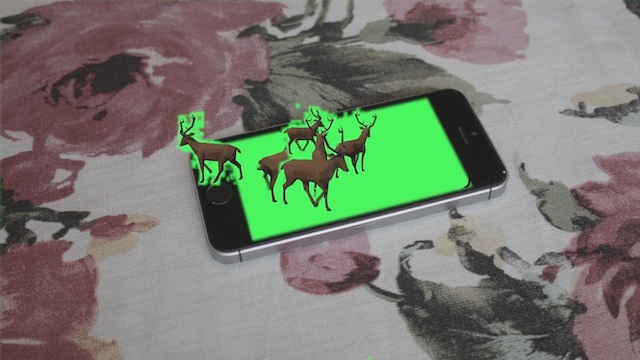
Amarandos
Iokasti Kyriaki Mantzog, Greece, 2024, Pontic/Greek, 29 min.“Amarandos”, the flower whose colour lasts eternal, is a messy vase of memory, dealing with transitions to other realms, while in the incomprehensible process of mourning , making worlds out of loss and time. It is a celebration, that attempts through the story of my Pontiac grandmother and her gradual fade out of her physical body due to Alsheimer illness, to weave through our songs and dances, the spaces we make to meet each other. Through this experimental short documentary, cultural and intimate narratives bring up collective questions around vulnerability, resilience and survival affectionate strategies. Can dancing and singing our sorrow possible feel like having power to disrupt the normative linear narrative of memory and channel past story tellings of empowerment and togetherness to now?
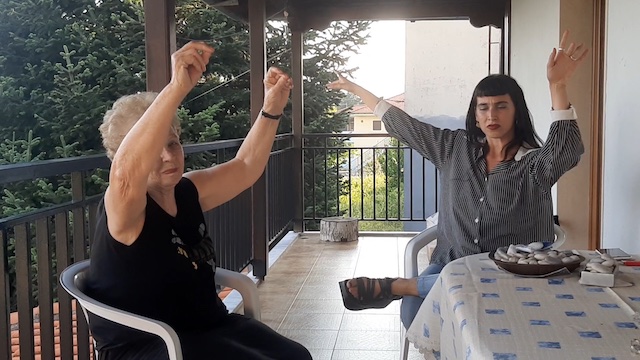
Wood for the Trees
Rob Crosse, France/Germany, 2023, English/German, 14 min.Finding parallels between a multi-generational, LGBTQ+ housing project and the study of old-growth forests, Wood for the Trees testifies to the ecological importance of diversity and care. This film is the first chapter of an ongoing project exploring systems of support that place value on inter-generational exchange and communication.
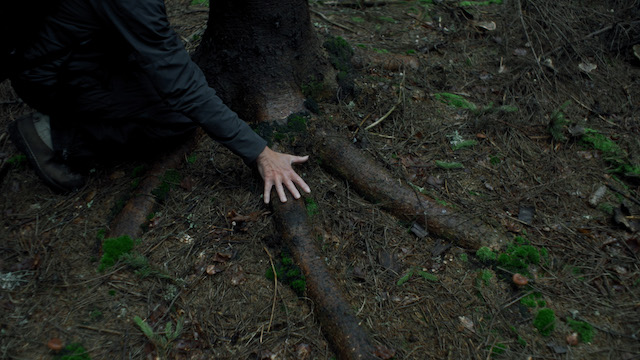
Stochastic Datasets
İpek Burçak, Germany, 2023, English, 16 min.Stochastic Datasets is a 3d animation video work about a fictional podcast taking place in an alternative future in Germany. In the podcast, that is also called ‘stochastic datasets’ two characters debate about health and AI, collective struggles and activism, future of social media, energy shortages among others. In Stochastic Datasets, the two podcasters are actively engaged in working through futures with non-capitalist technologies even though they live in a post- and hypercapitalist society in the near future. The podcast studio room works as a portal; there are remnants and artefacts (photos, objects) spread in the room that let the viewer dive into different aspects of the time and topics. In this alternative future, movements (like the Socialist Patients Collective) from the past have survived and continue to exist in connection with new struggles. How would a communist AI work? Can the health system be saved through or from AI?
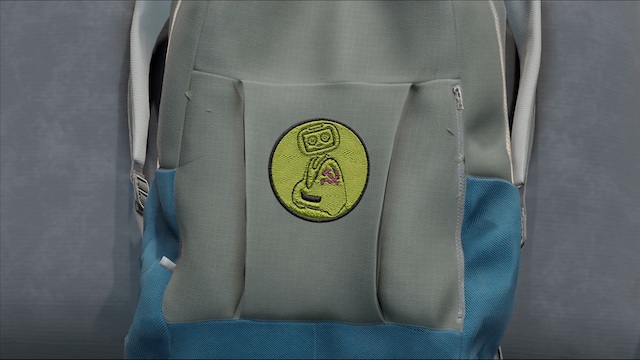
Maria Inês Gonçalves studied film at the Lisbon Theatre and Film School and at the Elías Querejeta Zine Eskola, with a grant from the Fundação Calouste Gulbenkian. Her first short "O Meu Pijama" premiered at the Premiers Plans D’Angers Film Festival. She has worked in production management in films such as "The Metamorphosis of Birds" and "The Lamb of God". She is currently developing her first feature, a project selected for the NOKA Mentoring program at the Tabakalera Cultural Centre in San Sebastián.
Samir Nahas is an interdisciplinary artist born in Switzerland. Growing up partly in alpine environments, he developed a strong relationship to mountains. In his artistic practice, he often addresses landscape as a reflection of our deeper self. He documents sites and combines the footage with elements of personal reverie. The documented and the fictional collide and result in mystical fables. Samir works within the practice of video, drawing and sculpture. After living consecutively in the US and the Middle East, Samir has returned to Europe and is now based in Berlin.
Iokasti Kyriaki Mentzog is Greek-Pontiac artist, activist and witch based in Berlin. In their practice they move between mediums of movement, choreography, text and video , attempting to create chaotic poetic containers, often through femme hyperbole and disturbing personas . Their work has been presented in Germany, Greece, Switzerland and France, in places like Tanztheater Mainz, Hau, Uferstudios, Theater of Greek School of Arts etc. They are particularly interested in methodologies of field research, specifically in collecting diverse oral and embodied histories of marginalized groups as long as nonhuman encounters, in order to create counter memory dances and other speculative fabulations. At the moment, in their artistic process, they are curious, researching states of urgency, transformative practices, compasses of the dream through the collective unknown and grieving lullabies.
Rob Crosse is a visual artist and filmmaker from the UK. His work questions the prevalent association between ageing and decline through video, photography, sculpture, drawing and performance. His working process often involves engaging with communities and support groups of older people over long periods of time. His work has been shown as part of Chaleur Humaine, (Triennial Art +Industry, Musées Dunkirk, France, 2023); Plant Fever (Kunstgewerbemuseum, Dresden, Germany, 2023); Ars Viva 2020 (Kunstverein Hannover, Germany, 2021). He was a participant in the Berlin Program for Artists in 2019 and in 2020 he was awarded the Ars Viva Prize. He lives and works in Berlin, Germany.
İpek Burçak is a media artist working with video, sound, performance, installation and publishing. In her works, she practices world-building through sci-fi narration and lo-fi technologies while connecting to counter-culture histories or presents. İpek Burçak co-runs Well Gedacht Publishing, an initiative that publishes artist books, edited zines and pamphlets. She lives in Berlin.

How do political changes and colonial interventions reshape urban spaces and social structures? How are these transformations documented, narrated, and disseminated? And how do archival appropriations challenge hegemonic narratives to seek spatial and social justice? From an imaginary city to Abadan, Kurdistan, and Mashhad, these films utilize archival resources to revisit pivotal moments of upheaval and socio-political transformation. Each film uniquely addresses the restitution of memories, the restoration of the imaginary, and the exploration of counter-narratives.
Sanaz Sohrabi’s One Image, Two Acts juxtaposes the imperial archive of British petroleum with her family archive, examining how petro-modernity, imperial interventions, and visual technologies shaped Abadan’s social and industrial landscapes. The film takes on oil as both a commodity and a cultural archive, highlighting its impact on Iranian politics and anti-colonial cinema. Sara Rajaei takes the audience to the City of Poets, where all the streets are named after poets, and explores the social and urban transformation of a semi-utopian city after the war. Landscape Suspended tracks the story of a police interrogation about the Shahoo Mountain, home of the nomadic Kurdish tribe of Havar Neshins and Kurdish guerrillas. Re-reading of a Protest Video analyzes a video filmed by an anonymous protester on the evening of September 20th, 2022. Mahshid Mahboubifar takes on the video as a medium of protest, observing the socio-spatial dimensions of the protest and its actors.
Text by Nafis Fathollahzadeh
One Image, Two Acts
Sanaz Sohrabi, Iran, 2020, Farsi, 44 min.One Image, Two Acts unravels the multifaceted and intertwined systems of oil infrastructures spanned and accumulated across unlikely geographies and material temporalities. Examining the photographic and film archives of British Petroleum (BP) during its operations in Iran, Iraq, and Kuwait, this film traces the visual and media infrastructures through which oil has operated as an agent of power in the colonial episteme. It unpacks BP’s widespread construction of cinemas in the oil towns of South-Western Iran and follows the transformation of this emergent image economy in contouring the nationalization movement and the anti-colonial cinema between 1950-1980 in Iran. This film examines the ways in which the oil company’s visual regimes of petro-modernity were reclaimed and countered by a growing anti-colonial cinema in which oil was a protagonist and cinemas had become the contested emblem of colonial development.
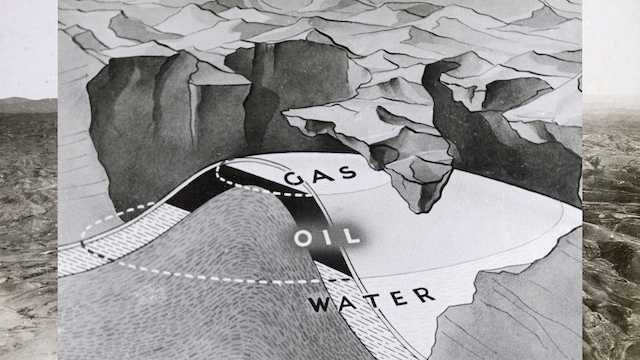
City of Poets
Sara Rajaei, Netherlands, 2024, English/Farsi, 21 min.In a small, semi-utopian city, all the streets are named after poets. When war begins, new neighborhoods emerge to accommodate the refugees. Soon the citizens find themselves lost amid the memories of the forgotten poets.
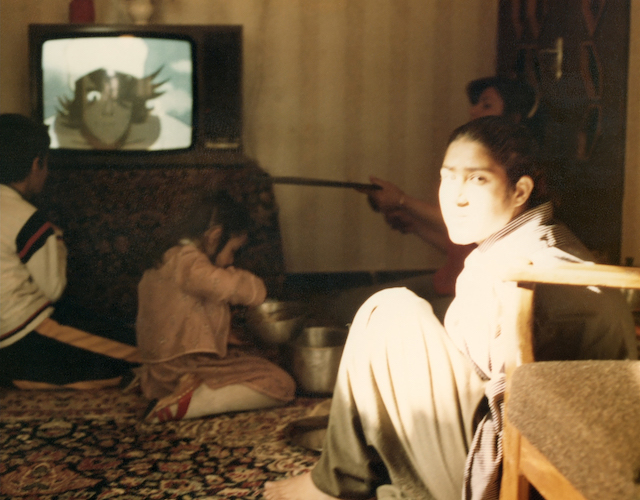
Landscape Suspended
Naghmeh Abbasi, Iran/Canada, 2022, Kurdish, 27 min.Landscape Suspended tracks the story of an “interrogation” through the footages from Shahoo mountain, a mountain in Kurdistan of Iran which hosts nomadic Kurdish tribe called Havar Neshins and Kurdish guerrillas. This film’s images are a kind of revelation through visual interrogation, revealing the perception of the socio-political history and violence that surround the people in the mountainous area.Through landscape as its approach, this film tries to uncover spatial justice by observing the living space of the Havar Neshins, identified based on the complexity of the landscape in which they reside.
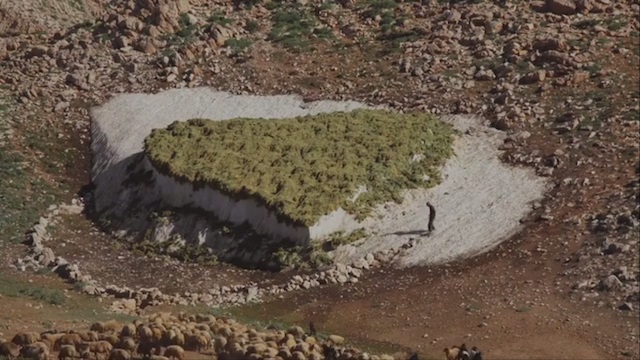
Re-reading of the Protest Video
Mahshid Mahboubifar, Iran, 2023,English/Farsi, 7 min.A footage, filmed by an anonymous protestor, went viral on social media on the evening of September 20th, 2022. By re-seeing the footage repeatedly and using montage, the video attempts to highlight the traits of video as a medium of protest, focusing on the protest situation and the protestors' bodies.
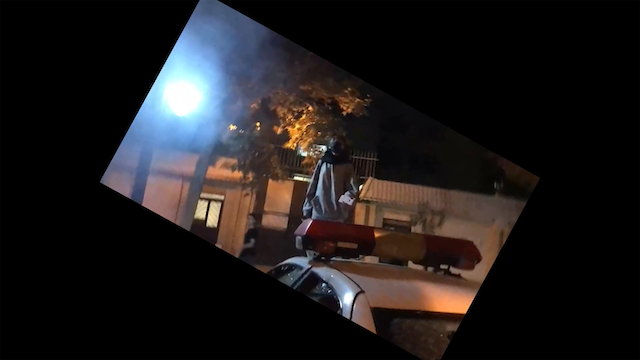
Sanaz Sohrabi is a researcher of visual culture and artist-filmmaker. Sohrabi works with essay film and installation as her means of research to explore the shifting and migratory paths between still and moving images, situating a singular image in a continuum of historical relations and archival temporalities. Sohrabi’s work engages with the politics of recovery in photographic archives and the role of photography and film as technologies of public-making and subject positioning
Sara Rajaei is an Iranian-Dutch visual artist and filmmaker. She holds a BA in visual arts and was a resident at the Rijksakademie in Amsterdam. In her work, she studies the notion of time by reflecting on the absence of image, memory psychology, oral history, narrative techniques, and physical/psychological space. Her films have screened at International Film Festival Rotterdam, Rencontres Internationales, Art Brussels and the Museum of Modern and Contemporary Art in Rijeka, Croatia. She is currently developing her first feature film.
Naghmeh Abbasi is an artist and filmmaker who lives and works in Tehran. She holds a bachelor's degree in Film, Video and Integrated media from Emily Carr University of Art and Design and an MA in Media Studies from The New School. Her filmography includes Landscape Suspended (2022), A Flat Surface Higher than the Ground (2020), My Voice Takes on the Tone of a Convict (2018), White Shadow (2017), Inertia (2016), When He Explores the Vast Universe of the Boat in the Middle of the Ocean (2016), A Glimpse (2010).
Mahshid Mahboubifar is an artist working with still and moving images. She primarily uses archival material to bridge the realms of objective reality, research, and subjective perception. Currently living in Berlin, she studies Expanded Cinema at the Academy of Fine Arts in Leipzig. She earlier completed a Bachelor's in Visual Communication in Tehran and a Master's in Digital Media in Bremen.
/About the curator
Nafis Fathollahzadeh is a visual artist and researcher working at the intersection of artistic research, video art, and photography. They were a fellow researcher in the Rosa Luxemburg scholarly program International Research Group on Authoritarianism and Counter-Strategies and are affiliated with EUME: Forum Transregionale Studien in Berlin. They are the art director and co-editor of Momentography of a Failure, an artistic research platform for collaborative thinking, mapping, and publishing. Their films have premiered at various festivals, e.g.,
/About the panelist
Sara Delshad is currently a PhD candidate in Film Studies at Freie Universität Berlin. Over the past ten years, she has worked as a film critic, video essayist, and translator of cinematic texts, primarily for the online Farsi film magazine, Vitascope. Additionally, she has contributed to international online publications, including Senses of Cinema and Tecmerin. Her research interests span a broad range of topics within film studies, with a particular focus on French cinema, American cinema, essay film, experimental cinema, feminist film theory, and sound in cinema. Her PhD research centers on Éric Rohmer’s cinema, specifically examining spiritual corporeality and embodied speech in his films.
Retelling the lost stories, “Phantom Records” brings together films in search of things beyond reach, fractured and fragmented, people scattered, identities in crisis, and terrains divided. Each assembles these diverse concepts – and many more - and weaves threads among them while questioning the existing, assumed connections. Inevitably, there is a constant reference to history-making, despite the narrator’s apparent awareness of the dangers of stabilized timelines and official histories. To shake them, overshadowed figures are summoned to mess up with the rigidity of records, to pass through them like phantoms. Opening up the program is Pilgrimage to Arrive Back to You, a journey through the director’s personal archive, touching issues of colonialism, identity, and relationships; a journey of getting reacquainted with a past self. Then, Seeking for Story unearths Ali Mirdrekvandi’s life, who was a peasant labourer from Lorestan but the film does not claim to tell the story of an archive, rather, it seeks to transform history into mystery. How to (not) live a legacy? takes the form of an autobiographical video essay, exposing the long-forgotten memories of the Wolbukja family and the women’s sides of the stories, and sheds light on the complex dynamics surrounding the relationship between South and North Korea. Lastly, Fiktionsbescheinigung is a drama that explores the ceaseless, and often futile, cycles of visa regimes through the allegory of a train that never stops moving, inspired by Berlin’s U10, infamous for never having been built and known as the "phantom line.”
With the participation of filmmmakers!
Pilgrimage to Arrive Back to You
Raras Umaratih Germany, 2024, Indonesian/English, 31 min.Fragments of images and words taken from my personal diaries from 2017-2024, mostly in my mother tongue. This journey through my personal archive, touching issues of colonialism, identity, and relationships, is like getting reacquainted with a past Me who is still living in parallel - as if they are sitting next to me. The gendershifting narrator, a different voice for each different diary entry, attempts to acknowledge the collective cacophony that births and shapes an individual. A song named rage, confusion, depression, joy and pride.
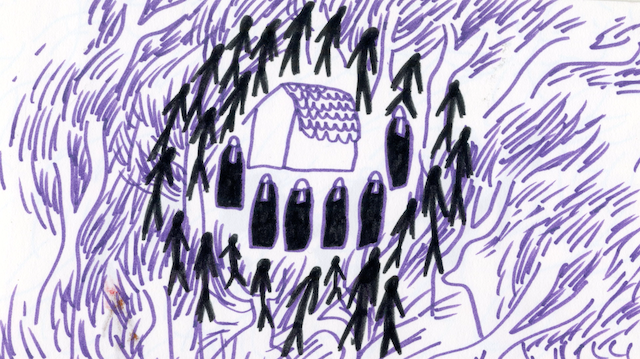
Seeking for Story
Ashkan Sepahvand, United Kingdom, 2024, no spoken dialogue, 22 min.Ali Mirdrekvandi was a peasant labourer from Lorestan who, during the Allied Occupation of Iran (1941-46), befriended John Hemming, an English lieutenant and schoolteacher. Ali taught himself English and wrote an epic romance, "Irradiant," as well as a novella, "The British and American Officers' Book" (aka "No Heaven for Gunga Din"), which John read, revised, and tried to publish. Fate would have his stories pass through unexpected hands, notably the Oxford Orientalist R.C. Zaehner, one of the British agents involved in the 1953 Iranian Coup d’état. John bequeathed Ali's archive to the Bodleian Libraries upon his death. As for Ali, he travelled to search his Creator, "waiting to be worthy for speaking..."
The film "Seeking for Story" does not claim to tell the story of an archive. Rather, it seeks to transform history into mystery. Through an encounter with a scholar (Mariam Motamedi-Fraser) and a dancer (Cecilia Macfarlane), the subject becomes embodied. What results is an attempt to show a fantasy – of leaving a language, carrying a weight, and embarking on a sacred journey – through the figure of Luti, an imaginary of the Other in Iranian spectacle.
The film was co-produced by The Cultural Programme
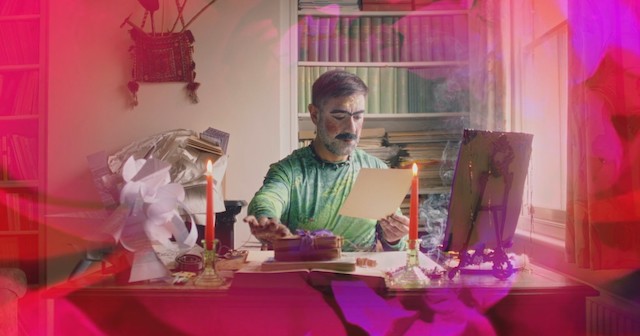
How to (not) Live A Legacy?
Jane Hwang, South Korea/Germany, 2023, English/Korean, 26 min.“"How to (not) live a legacy?" takes a form of an autobiographical video essay, unearthing the long-forgotten memories of the Wolbukja family. It shed light on the complex dynamics surrounding the relationship between South and North Korea, the experiences of Wolbukja families, and the challenges faced by women in sharing their narratives. Examining these topics will provide a deeper understanding of the multifaceted nature of Korean society and the enduring impacts of historical and ideological divisions. "How to (not) live a legacy?" demonstrates how political, social, and gendered dynamics intersect and shape the experiences of individuals and communities. This video essay seeks to foster a greater appreciation of the complexities inherent in Korean society and the importance of understanding the diverse narratives that contribute to collective memories.
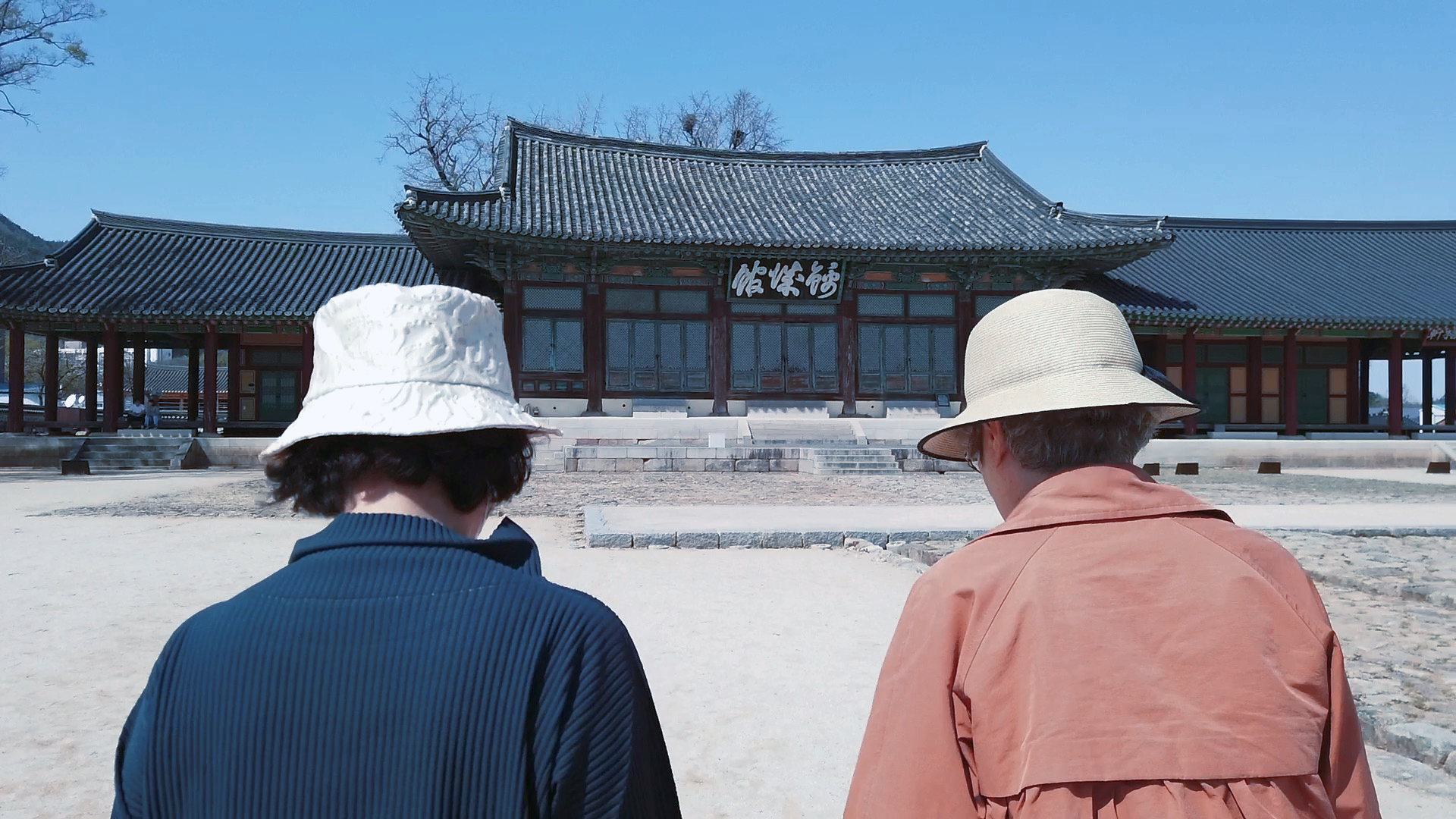
Fiktionsbescheinigung
Shokoufeh Eftekhar, Germany, 2022, German, 7 min."Fiktionsbescheinigung" is a metaphorical drama that explores the ceaseless and often futile cycle of visa regimes through the allegory of a train that never stops moving. The story follows a person, who finds themselves trapped in a bureaucratic limbo, much like a passenger on an eternal journey. Boarding on a train only to discover that it has been rerouted onto the U10 line, a subway line that is infamous for never having been built and is known as the "phantom line." This change symbolizes the illusory promises and endless delays inherent in the immigration system. The train's unceasing motion and directionless path mirror one's own plight, caught in the never-ending cycle of visa applications, rejections, and temporary stays.
The film's visual and narrative elements draw heavily on the metaphor of the phantom line, creating a surreal atmosphere. "Fiktionsbescheinigung" is a poignant and evocative film that uses the allegory of an eternal train journey to shed light on the often invisible struggles of immigrants, inviting viewers to question the systems that perpetuate their plight.
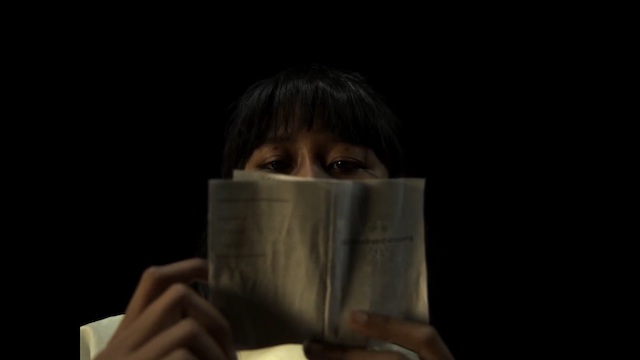
Raras Umaratih (they/them/dia) is a multimedia artist and organizer who is currently working and studying in Berlin since 2018. Before that they were part of Jakarta-based MilisiFilem Collective. They work with different mediums as is needed by the idea, including: compost worms + ecosystems, zines and self-publishing, drawing, written and spoken word in mother-, second-, and third-tongues, experimental music and site-specific performances. They also organize collaborative projects such as the “Lambe Lambe” street occupation poster workshops, and initiating the open call zine project Garuk Garuk (‘scratch scratch’) since April ’23. One of their day jobs is also working as tutor for *foundationClass, an art study prep program for people with experience of exile and/or racism. They believe in shifting away from a competitive, merit-based art-as-commodity industry, and into practices that seek to relate, and to keep the conversation going.
Ashkan Sepahvand is an artist, writer, and researcher. He was born in Tehran, Iran grew up in Tulsa, Oklahoma and lives and works between London and Berlin. His practice takes time. He is interested in words and bodies. Projects take the form of performances, publications, and regular collaboration with friends. Together with Natascha Sadr Haghighian, they founded the institute for incongruous translation, a framework for their shared studies. He is one half of ssssSssssssss, a study-friendship with Virgil B/G Taylor. Currently, he is finishing a practice-based DPhil in Fine Art at the Ruskin School of Art, University of Oxford.
Jane Hwang is a multimedia artist based in Berlin. She employs research based narratives to navigate the intricate intersections of community memories and documentation. Her work investigates subjects such as oral history, archives, geopolitical dynamics, fragmented memory, rituals, and the sensory impact of historical findings through film, text, and audiovisual installation. Hwang holds a B.F.A. from the Massachusetts College of Art and Design and an M.A. in Art in Context from the Berlin University of the Arts. Her work has been exhibited on various platforms, including a solo exhibition at Artspace Hyeong, Seoul (2024) as well as screenings and group exhibitions at the 18th River Film Festival, Padua (2024), CCA Berlin (2023), the Icelandic Visual Artists Association, Reykjavik (2020), and the Museum für Fotografie Berlin (2020).
Shokoufeh Eftekhar (Karaj, Iran) is a translator. U currently studies Media Art at the Academy of Media arts (KHM) Cologne, Germany. As U lived in several cities and the fact that U has grown up with technology, led them to often identify themselves as a blue circle moving on a map, changing locations and seeking for answers of their questions. U’s practice is considered as translation, translating places, emotions, mediums, bodies etc. U's projects are based on the process of their way to finding these temporary answers. Dealing mainly with the experiences of digital bodies, the illusions of impermanence and virtual identity.
(i) The bombed national library of Sarajevo serves as a backdrop against which various voices speak, colliding past and current conflicts together amidst ruin and an uncertain future. (ii) Various writers, activists and artists read scripted texts and perform conversations that bring the uprising in Lebanon, Black Lives Matter movement, Migrant labor rights and the Palestinian struggle together to explore how we connect individually to these movements and across borders. (iii) Mahmoud Darwich details how the tragedy of the Palestinian struggle is defined by the tragedy of another people. (iv) Intimate phone conversations between a mother and daughter, voice notes of a song from a different era produce a delicate portrait of displacement from a place of instability in which personal relationships are contrasted against crumbling cities.
In this program, excerpts from Notre Musique are woven into two films: Bassem Saad’s Congress of Idling Persons (2021) and Sarah Zeryab’s Reflections (2016). The films are brought together to look at how we respond to crisis, war, upheaval whether ongoing or in the past, whether in the space of libraries or in the street, and what reverberations they leave within us.
Text by Basma al-Sharif
Reflections
Sarah Zeryab, Lebanon, 2016, Arabic, 17 min.Throughout the three consecutive years Sarah has lived in Beirut, WhatsApp has been the only means of communication between her and her parents in Al Yarmouk camp in Damascus. Sarah receives from her father a voice note of him singing her a song by Oum Kulthoum. It is through the voice notes exchanged with her parents that Sarah discovers that the war has reversed their roles: the adults have become children who devour memories of the past. She, meanwhile, asks herself, “What do my parents look like now?"
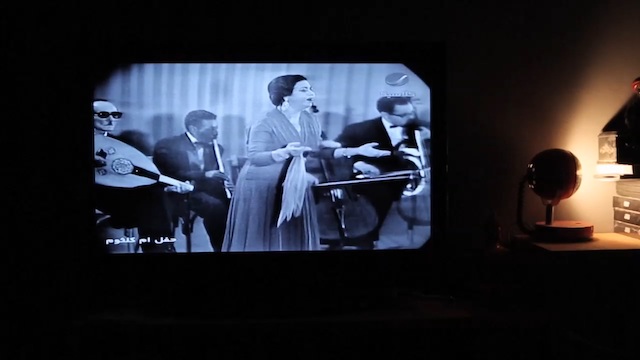
Congress of Idling Persons
Bassem Saad, Lebanon, 2021, English/Arabic, 36 min.The film features five interlocutors who play themselves and greater fictions, in the shadows of recent world-historical events. Artist and writer Bassem Saad, DJ and translator Rayyan Abdel Khalek, musical artist Sandy Chamoun, writer Islam Khatib, and organiser Mekdes Yilma examine a cartography of protest, crisis, humanitarian and mutual aid, migrant labour, and Palestinian outsider status. Punctuated by the late Arab Spring, the Black Lives Matter revolts of 2020, and the Beirut port explosion, the film weaves through transhistorical constants — from rage and mourning to spontaneity and besiegement — propelled by the speech and acts of its performers. If a group action is a riot and not a revolution, then who films it? If four is a riot, it is also a congress.
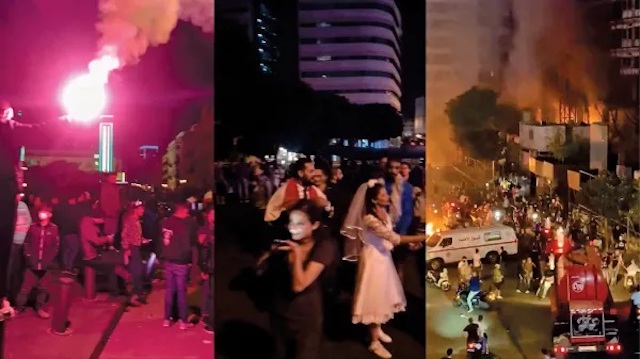
Sarah Zeryab is a Palestinian artist and filmmaker whose work spans various forms of media, with a focus on films, videos, sound, and text. Through audio-visual and spatial tools, her practice revolves around narrating and re-narrating the affective and aesthetic materializations of loss, statelessness, resistance, and exile. Grounded in personal experiences of refuge, her work examines the tension between private and communal spaces, especially when these spaces no longer exist or have become ruins.
Bassem Saad (she/her) is an artist and writer born in Beirut. Her work explores notions of historical rupture, spontaneity, and surplus, through film, performance, and sculpture, alongside essays and fiction. With an emphasis on past and present forms of struggle, she attempts to place scenes of intersubjective exchange within their world-historical frames. Bassem’s work has been presented and screened at MoMA, CPH:DOX, Triangle-Asterides (Marseille), Busan Biennale, Swiss Institute (Rome), Ludwig Forum (Aachen), Cabaret Voltaire (Zurich), and Transmediale. Congress of Idling Persons, received Special Mention in the New:Vision Award category at CPH:DOX 2022.
/About the curator
Palestinian artist/filmmaker Basma al-Sharif explores cyclical political histories and conflicts. In films and installations that move backward and forward in history, between place and non-place, she confronts the legacy of colonialism through satirical, immersive, and lyrical works.
The films in “Invasive Species” revolve around the dispossessions of our memories, our rights to selfhood and bodies, our possibilities of loving and being loved, and our right to future and worldmaking. While centering violations on and losses of such formative qualities, films portray the damage that can cause and question the effects of contaminated epistemologies. In the end, we witness not only an invasion by a foreign entity, but also a response from the invaded for a counter-invasion to reclaim their bodies and selfhood. The motive of trespassing in each film is a story of dissolution but, at the same time, a reconfiguration. The programme starts with At That Very Moment, a journey through a child’s perception of the inner and outer world, getting blurred in his mind as he evokes his obsessions and captures his surroundings with a camera. Moving on, Who Gets to Die? is an essay film about death and dying in pop culture, prison, and the films of Hilary Swank, to question the right to live and death in today’s neoliberal states’, drawing on personal experience of mental health and suicidality. Dildotectonics reveals connections between the ceramic dildos of Rebeca and the forbidden love of two recolhidas (secular recluses) during the Inquisition, who lived in different times but whose stories share defiance of forbidden territories. Finally, Farewell recording for an observer of an unknown time and place derives notions from speculative and worldbuilding and is an essayistic digression on capitalism, environment, technology, and death which focuses on the Invasive Landscape Phenomenon, a mysterious, fast-spreading malady.
At That Very Moment
Rita Pauls and Federico Luis, Argentine/Germany, 2023, English, 12 min.A child raised in the mountains yearns to squeeze reality. The inner and outer world get blurred in his mind as he evokes his obsessions and captures his surroundings with a camera.
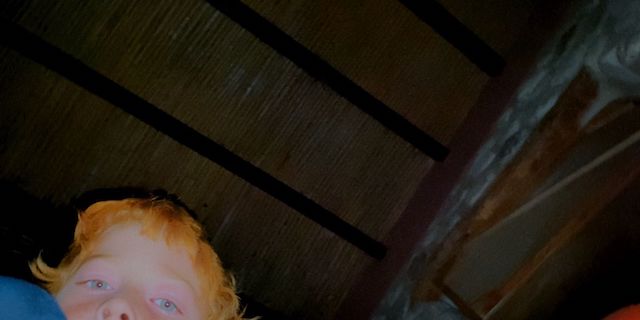
Who Gets to Die?
Hazel Katz, USA, 2021, English, 21 min.Who Gets to Die is an essay film about death and dying in pop culture, prison, and the films of Hilary Swank. The project is grounded in Jasbir Puar’s text The Right to Maim [2017], in which Puar describes how the neoliberal state punishes some with death. For others the state makes living a halflife - often through debility - that's a punishment for existing in the first place. In the project, I draw on personal experience of mental illness and suicidality to extend Puar’s claim to those who want to die but who are denied death.
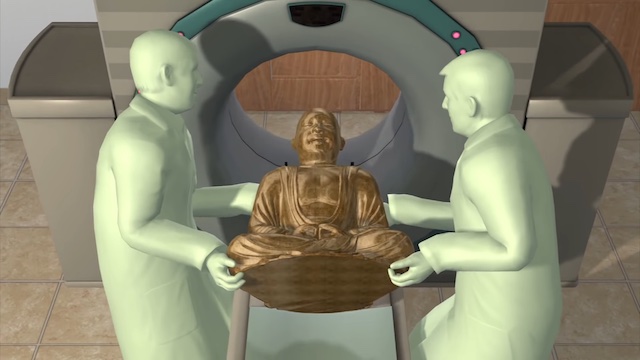
Dildotectonics
Tomás Paula Marques, Portugal, 2023, Portuguese, 15 min.In this day and age, Rebeca attempts to create a collection of non-phallic ceramic dildos. During the Inquisition, Josefa finds a dildo that is used in their forbidden love relationship with Maria. Although in different timelines, the paths of Rebeca and Josefa end up crossing each other.
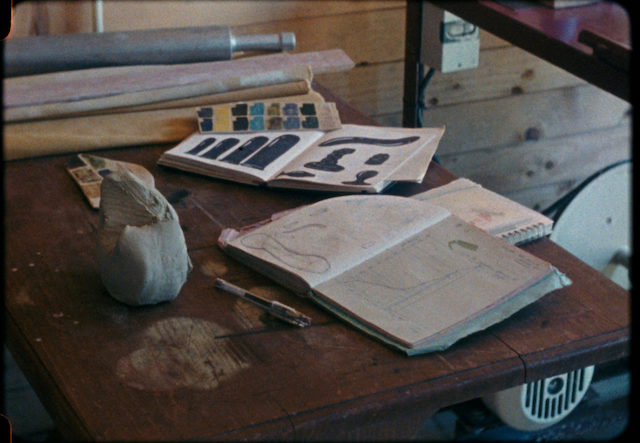
Farewell recording for an observer of an unknown time and place
Rita Macedo, Germany, 2023, English, 25 min.Part speculative history of the future, part worldbuilding rendering, Farewell recording for an observer of an unknown time and place is an essayistic digression on capitalism, environment, technology and death. Central to the work is Invasive Landscape Phenomenon, a mysterious, fast spreading malady. Reminiscent of dissociative trauma response, this affliction emerges in a world on the verge of ecological collapse, in which first-hand experience is replaced by a mediated alternative to physical presence.
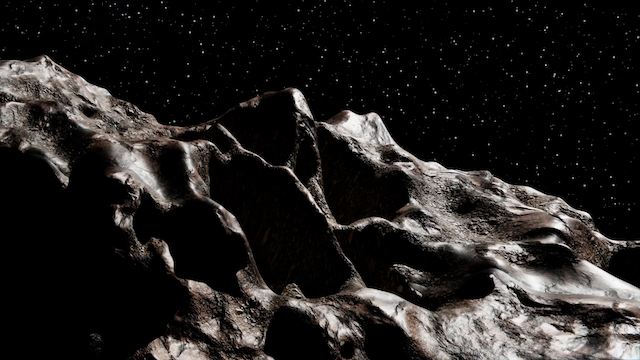
Rita Pauls, born in Buenos Aires in 1993, is a performer, writer and translator. In her work she explores language, intimacy and the search for uncontrolled performative situations. She wrote the script for the performance The Clouds: conversations on stage of The Mother and The Daughter, the short film La Siesta (The Nap) with Federico Luis Tachella, the theater piece MundStück with Ant Hampton and the musical film Stroke of Luck/Death with La Piba Berreta. She collaborated as a performer with artists such as Federico León, Dora García, Paula Salomón, Dudú Alcón Quintanilha and Jimena Crocceri. At that very moment (Best Documentary Short at IDFA Short Film Competition 2023) is her first short film as director.
Federico Luis was born in Buenos Aires in 1990. He studied Social Communication at the University of Buenos Aires. In 2018, he shot “Mirko”, his first short film, which won the Audiovisual Award from the Argentinian National Endowment for the Arts. His short film La Siesta (The Nap) had its international premiere at the Official Short Film Competition of the 2019 Cannes Film Festival. It was also distinguished with an Honorable Mention in TIFF’s Shortcuts (Toronto Film Festival) and won best short film at the 2019 Buenos Aires Film Festival. Stay Still or I’ll Love You won the CineAr award for the best short film at 2023 Mar del Plata International Film Festival. At that very moment, co-directed with Rita Pauls won Best Short Documentary Award at IDFA 2024. How To be Pehuen Pedre is set to premiere in Visions Du Reel 2024. His first feature film, Simon of the Mountains, won the Grand Prix at Cannes Critics' Week 2024.
Hazel Katz is a video artist and filmmaker. Her short narrative film Sydney and Kim is shot on 16mm and will premiere at festivals in Fall 2024. Her feature length documentary Florida Water is now distributed by Collective Eye Films. She has taught young people of all ages, most recently as a Gender Studies lecturer at Scripps College and a Film Production lecturer at Cal State San Marcos. Hazel is involved in rank-and-file labor and prison abolition organizing.
Tomás Paula Marques (she/they, b.1994) is a portuguese filmmaker from Porto. Having completed a master's degree in Filmmaking at Elías Querejeta Zine Eskola (San Sebastián), she previously did a postgraduate degree in Sociology at ISCTE (Lisbon), and was originally trained in Directing and Cinematography at ESTC (Lisbon). The characters in her films tend to face difficulties when questioning or breaking expectations of gender and sexuality. These themes are informed by her lived experience and by historical and sociological research, which is part of her practice. Her work has been shown in several festivals and screenings, including Anthology Film Archives, Curtas Vila do Conde and IndieLisboa, FICUNAM, Go Short , Kurzfilm Festival Hamburg , Olhar de Cinema, Premiers Plans d'Angers, San Sebastián International Film Festival, Visions du Réel.
Rita Macedo is a filmmaker and video artist based in Berlin. Fascinated by the poetic affinity between moving images and fluxes of thought, Rita’s works often operate within the realm of documentary and speculative fiction, with a focus on meaning, memory and history. Rita's works have been shown in numerous festivals and exhibitions.

Hadithi Hadithi was born three years ago, as part of an experiment to reinstate the plural nature of myths and mythmaking. It was initiated in response to the commodification of oral history, and to an emergent history of myth, particularly myths from the African continent, which boxes oral storytelling in an undefined past where old tropes and stereotypes about gender and nationhood can be hidden under a glaze of nostalgia. It was an attempt to evoke and excavate the myths of the present. Several years later these 5 stories by women and non binary artists from East Africa and the world(s) they offer have garnered their own nostalgia, their own version of history. One that is both contemplative and fantastical and which endures as a ripple of the variety of history, identity, and knowledge of an often misread part of the world.
Hadithi Hadithi is the opening part to an oral tale in Kiswahili, similar to Once Upon a time. The response, typically is Hadithi njoo, uongo njoo utamu kolea. Bring the stories, bring the lies, distilled in sweetness.
Uwepo Wa Mwanamke (In The Presence Of Woman)
Getrude Malizeni, Tanzania, 2022, 11 min.Through the eyes of a child searching for her mother across spaces where women operate in Dar es Salaam — this piece seeks to define ‘mother’ not as a noun, but as a verb, as acts of care performed by women. Malizeni uses familiar lullabies and other storytelling practices to synonymize the spaces and the acts of care with ‘mother’, and build their relationship with the child that moves through them.
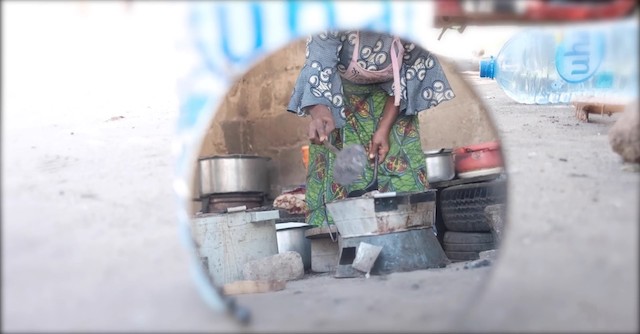
An Ode To A Time I Loved Bread
Neema Ngelime, Tanzania/Belgium, 2021, 11 min.This memory trip of juvenile sentiments recalls the filmmaker's time at a colonial legacy boarding school. Though high school can be fun and memorable for some, Neema compares her teenage years to her peers' and finds odd differences. The rules she followed in school under the umbrella of "suffer now, enjoy later" make no sense these days. To revisit those times, Neema recreates her memories using collage. She lays down the absurd, the silly, and the sometimes unforgivable, interrogating it with her present self.
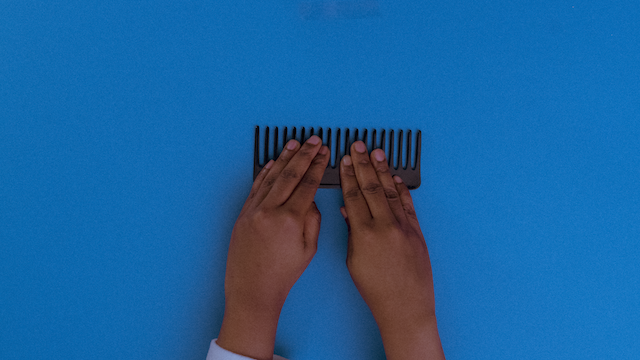
Aichu Mwii Na Ruwa Okye (The sun and its god)
Valerie Asiimwe Amani, Tanzania, 2022, 9 min.Mnengeri, a sun god, wanders far beyond their skies – losing their warmth and getting completely lost. In an attempt to get back to where they should be, they encounter an Oracle and a Moon that aid them. The search becomes a journey of self-discovery as their encounter reveals to them something they always knew.
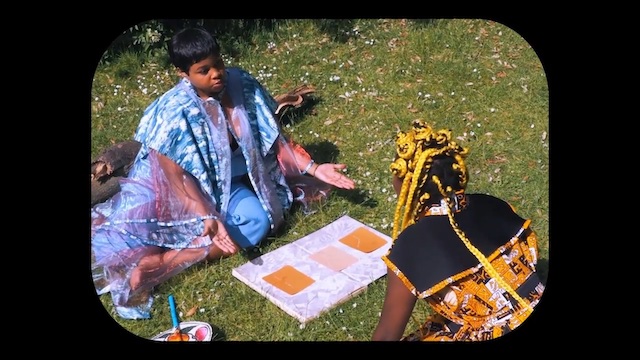
Camel’s Back
Arwa Michelle Mboya, Kenya, 2017, 21 Min.13-year-old Kenyan girl, Susan (Tatiyana Gati), believes she only has one day left to live and wants nothing more than to find Diani Beach before she passes.
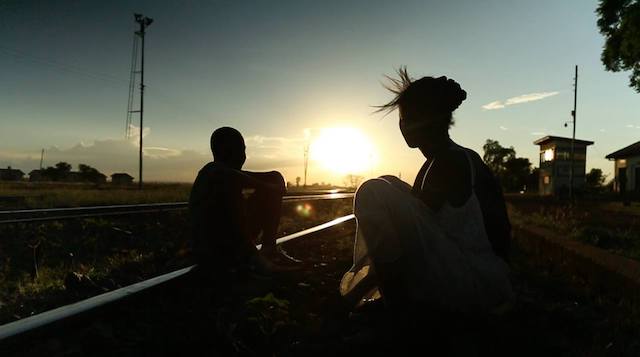
Kujiona
Arafa C. Hamadi, Tanzania, 2020, 26 Min.‘In this series, I explore my culture with an intent to find myself within it. I am from Dar-es-Salaam, and I have found myself actively and inactively living in other towns along this Swahili coast. This has led me to a process of relearning about my home, the cultures and the people who live here. The Kujiona Series is born from this process, and includes the conversations and creations I have accumulated.
The titular meditative film, Kujiona, follows the progression of a protagonist, myself, having two conversations. The first is with the scavenged dhow that I have created an artwork out of. The second is a conversation with Kevin Mwachiro – a queer Swahili man who has also found himself through engaging with the coast. This is presented through snippets overlaid with sounds from the coast that are familiar, and I hope this captures the continuous dialogue I am having with my home.’
- Arafa C. Hamadi
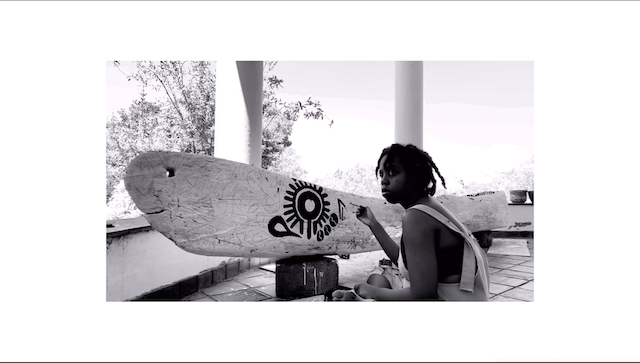
Getrude Malizeni (she/her) is a creative filmmaker & multidisciplinary artist based in Tanzania devoted to telling stories as a means of documenting and preserving the lived histories of women. Gertrude’s work is informed by her own personal experiences and indigenous practices of feminism within her community. Gertrude is a founding member of Ajabu Ajabu - a group of practitioners actively working on the preservation, production, and presentation of audio-visual art.
Neema Ngelime (she/her) is a documentary photographer and filmmaker with a focus on everyday life from a feminist and experimental perspective. Fascinated by the mechanical nature of life, she completed the DocNomads MA in Documentary Directing in 2021 as an Erasmus+ scholar. Her work has been showcased at festivals like Oberhausen, IDFA, Beldocs, New York African Film Festival, and London Short Film Festival. A 2023 Berlinale Talent, Neema is currently developing her first feature film with the DW Akademie Film Development Fund.
NValerie Asiimwe Amani (she/her) is a Tanzanian visual artist and writer. Her practice interrogates the ways in which body erotics, language, place and perceived reality are used to situate (or isolate) the self within community. She has exhibited internationally including group shows in Lagos, Paris, Cape Town and Leipzig with recent shows being a solo performance at South London Gallery in collaboration with the Roberts Institute of Art as well as a solo exhibition at Alliance Française, Dar es Salaam. Amani holds a MFA from The Ruskin School of Art where she is currently reading for a PhD in Practice with a Clarendon Scholarship. She is the 2023 Honoree for the Foundwork Art Prize, a winner for the 2022 Ingram Art Prize and is the recipient of the 2021 Ashmolean Museum Vivien Leigh Prize for a work on paper. She has been featured in Art Monthly, Hyperallergic and BBC amongst others.
Arwa Michelle Mboya (she/her) is an experienced designer from Nairobi, Kenya. She is the founder of the Black Hair Lab, which works at the intersection of design and technology for Black Hair. She has a Bachelor’s degree from Yale University and a Master’s Degree from the MIT Media Lab. She currently lives in Los Angeles.
Arafa Hamadi (they/them) is a multidisciplinary artist and curator working in Tanzania and Kenya. They create both physical and digital work, aiming to create fully immersive spaces that explore their identity in relation to space. Their main explorations are in scenography and set design, and they are also an award-winning 3D/VR artist, recognised by the Ministry of Arts in France.They have been part of various residencies with ProHelvetia (CH), the National Arts Festival (SA), the Prince Claus Award (NL) and many others. Their first solo exhibition, [BODY], was shown in Dar-es-Salaam, Tanzania and Nairobi, Kenya in 2023. They are the co-director of an event in Tanzania called ALTÆR, and are the Art Director of Beneath the Baobabs festival in Kenya.
/About the curator
Ajabu Ajabu is a collective of audio-visual practitioners based in Dar es Salaam, Tanzania working on the preservation, production, and presentation of audio-visual art. Their work is centered around curatorial interrogations related to deconstructing bias across film cultures, platforming underrepresented narratives and modes of storytelling, and promoting amateur and experimental practice. Visit ajabuajabu.com for more.
Jesse Gerard Mpango (he/him) is a storyteller from Kasulu, Tanzania. He is a founding member of Ajabu Ajabu, and recurrent within his work as part of Ajabu Ajabu, and as an independent practitioner, is the capacity for participatory rituals of imagining to unsettle and dislocate dominant narratives and extractive power structures.
/About the panelist
Júnia Matsuura is a producer, distributor and consultant based in Germany since 2013. She graduated in Film and Audiovisual Studies from UFF (Brazil) and in Film Studies from the Free University of Berlin. She embodies the fusion of global expertise and cultural richness. As the associate producer of the mesmerizing documentary THIS IS BALLROOM by Juru and Vitã, released in 2024, Júnia showcases her knack for weaving captivating narratives. Since 2022, she's been a member of the EAVE network. Currently, she is working on the alternative distribution initiative WE ARE HERE with Lediona Kasapi.
Date: Saturday 14th Sep
Time: 22:00-05:00
Donation entry
Proceeds will be donated to an important cause in Gaza: more info coming soon!
_
Come shift the shapes and shape the shifts with a fire line-up:
Aalia @aaliairaki
Astan Ka (live) @tisskeen
Mama Matrix & Hans Arsen (hybrid) @mama__matrix , @hans.arsen
Bloomfeld @bloomfeld
Chandé @chandedj
This program brings together six films that experiment with forms, creating an open, self-reflexive space to investigate how narratives are shaped. The films employ a variety of techniques from video-action to animation, and utilize still images, video games, textiles, newspaper clippings, family albums and embroidery to contemplate about the fluid nature of memory, narrative, and history, whether personal or collective.
Oktay İnce’s Sinema GM, an example of cinéma vérité, uses improvisation and performance as a video-action in front of the General Directorate of Cinema in Turkey to reclaim his personal archive that was confiscated. Aylin Kızıl’s Image Caption and Fatma Çelik’s Mehla Qorê both attempt to preserve memories by capturing images of neighborhoods that are on the verge of destruction or have already been destroyed. Semiha Yıldız’s Cûdîyê Miradan recreates her personal Mount Cudi using printed fabrics juxtaposed with newspaper clippings. Şirin Bahar Demirel’s Between Delicate and Violent seeks to uncover untold stories beyond the 'official family photograph albums' by examining hands, paint strokes, plants, and cross-stitches, whereas Enes Kılıç’s Landless employs AI and video games, to explore how images shape our understanding of reality and representation.
Together, these films invite the audience to a filmscape of shifting forms, reflecting on the dynamic process of memory, which is itself a constant process of shapeshifting.
Senem Aytaç
Sinema GM
Oktay İnce, Turkey, 2021, Turkish, 21 min.Video-activist Oktay İnce edited the footage of his action in 2019 in front of the General Directorate of Cinema to retrieve his confiscated archive. Ince, who is in the lead role of the action, is accompanied by the security guards, police officers and passers-by.
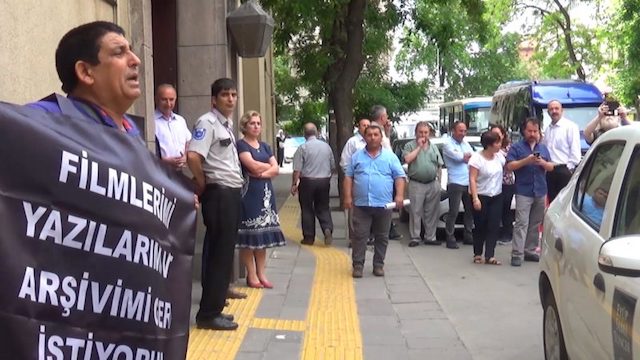
Image Caption
Aylin Kızıl, 2021, Turkey, Turkish, 7 min.Image Caption takes us on top of Helin Apartment – a tall building overlooking Diyarbakır Fortress and the surrounding neighborhoods, which are either demolished, reconstructed, or waiting to be demolished any moment now. The disembodied voice-over initially endeavors to rule over images but then slowly surrenders to them. As the voice starts to engage with the images, it slowly finds its body and place in the film’s world.
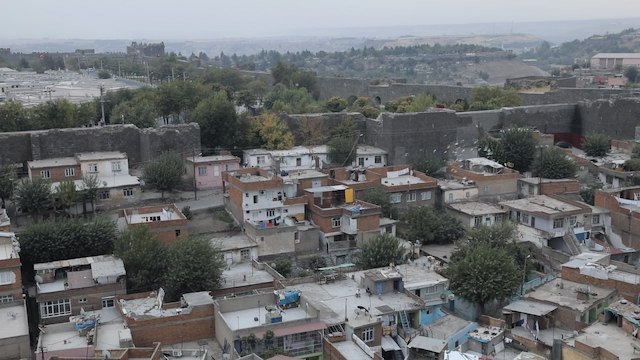
Mehla Qorê
Fatma Çelik, 2022, Turkey, Kurdish, 8 min.Mehla Qorê recreates the neighborhood where Fatma spent her childhood by building on her very first memory. The film brings together photographs of Suriçi, the neighborhood destroyed during 2015 clashes, old family photo albums, recollections of women in her family and what they remember and disremember while accompanying Fatma’s quest to find her first memory.
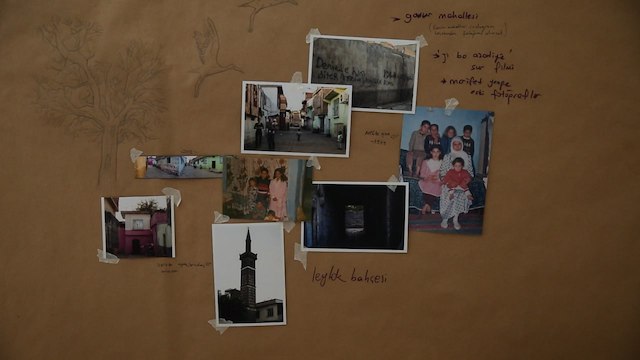
Cûdîyê Miradan (Cudi of the Wishes)
Semiha Yıldız,Turkey, 2021, 6 min.Cudi of the Wishes (Cûdîyê Miradan) treats the natural flow of four seasons in Cudi and the fallouts of conflicts that interrupt this flow. It is an attempt at reconstructing the name of the mountain - home to a wide range of flowers, goats, and honeybees that is believed to be the grantor of wishes - from within that geography in contrast to what outsiders have been attempting to do for decades.
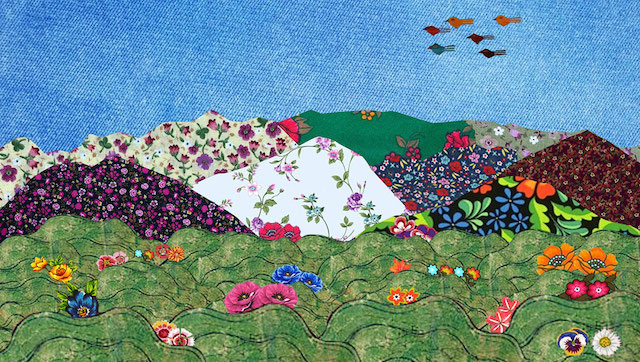
Zarafet ve Şiddet Arasında (Between Delicate and Violent)
Şirin Bahar Demirel, Turley/Netherlands, 2023, Turkish, 14 min.Between Delicate and Violent is an experimental documentary that considers hands as memory places that can both accumulate and transfer memories. Through hands and their creations, it imagines unearthing lost memories that have not been included in performative, socially acceptable family albums. Can we see the violence of the painter’s hands in the brush strokes of his paintings? Could cross-stitch be an alphabet of some sort? The film connects with the director’s past through imagination and creation, while opening up to larger human stories.
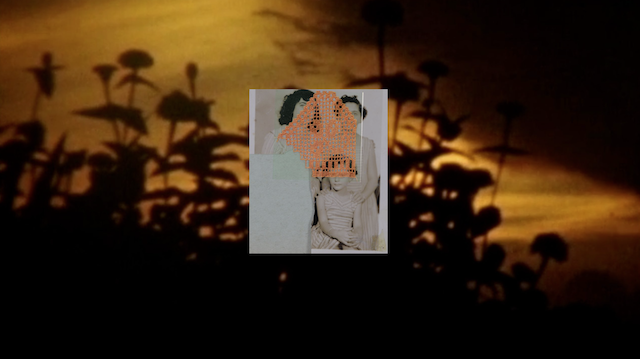
Sans terre (Landless)
Enes Kılıç, Turkey/France, 2023, French, 7 min.An essay film exploring the relationship between humans and propaganda, spanning from the enslaved individuals of 16th-century Saint-Domingue to the digital 'Sisyphus' role embodied by NPCs (Non-Player Characters) in the popular video game, Assassin's Creed.
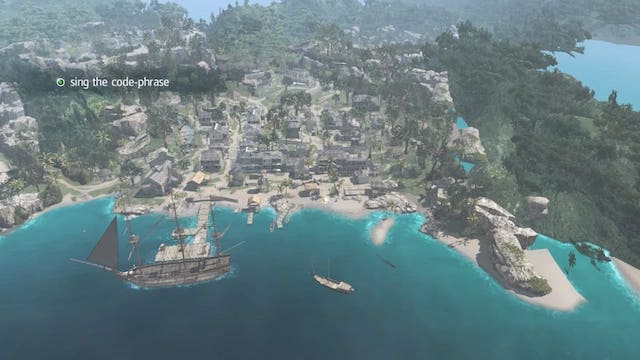
Oktay İnce was born in Mersin, Mut in 1960. He studied psychology between 1992-1995 in Middle East Technical University. In 2000, he established the video-act collective "karahaber" (blacknews) with his video collegues. In 2003, he joined to the collective editing project, Timescapes established by video artist Angela Melitapoulos. He joined several international video workshops in Sofia, Barcelona and Belgrade with his video "Behind the Mountain". He joined to the Greenhouse Documentary Development Program with Alper Şen, with their video project "Fight for the Garbage". Some parts of their videos has been screend in Zet Foundation (Amsterdam, May 2009) and Les Rencontres International (December 2010). Currently he is working with Armenian and Turkish visual artists under the project named "Dialogue in Motion".
İnce is a video activist, dedicated to amplifying social justice struggles through moving image. As co-founder of the video activist collective "karahaber" in 2000, he documented significant events like the land struggle of Kurdish villagers, hunger strikes protesting F-type prisons and the early trans movement in Ankara. İnce has also been involved in founding other video-activist groups, including “Seyr-i Sokak” and “Artıkişler,” making him a prominent figure in the fight to make marginalized voices visible in Turkey.
Aylin Kızıl was born in 1988, in Diyarbakır. She graduated from Eskişehir Anadolu University Faculty of Pharmacy. She joined Nar Photos Agency in 2012. She pursues documentary photography and video, and focuses on subjects of urban transformation, identity, gender, and migration. She attended workshops and project development, video technics, and portfolio reading. She continues to attend collective production processes across Turkey. She is a member of Zîn Kolektif, a photography collective of women photographers based in Turkey. She is the co-director of two short documentaries: Miraz (2017) with Serdar Bayram and Lezgin Kani; and A Tribune Story (2020) with Fatma Çelik. In 2017, she co-directed Miraz with Serdar Bayram and Lezgin Kani, in 2020 she co-directed Bir Tribün Hikâyesi (A Tribune Story) with Fatma Çelik, and in 2021 she directed a short film titled Fotoğraf Altı as part of BAK.
Fatma Çelik was born in 1987 in Diyarbakır, she graduated from İnönü University, Department of Psychological Counselling and Guidance. Since 2009, she has been working as a counsellor in schools in Diyarbakır. She also volunteers with children and women through non-governmental organisations. Her photography and video works focus on migration, identity, memory, ecology and gender. She participated in various workshops and artistic production programmes. She is working on a feature film about Özgür Gündem Newspaper and has short documentary films such as ‘A Securty Film2, ‘A Tribune Story’, Gündem and Kezî. She lives and works in Diyarbakır.
Semiha Yıldız was born in 1994 in Şırnak. She graduated from İnönü University Department of Computer Education and Instructional Technologies. She has been pursuing her interest in animation since 2016. She has worked as an animator for Zarok TV and Erkam Animation. She is currently working for Botan International as a social media content developer and publicity specialist.
Şirin Bahar Demirel is a filmmaker and visual artist, working with moving image, collage, and photography. Her works focus on the interplay between presence and absence by weaving political and personal narratives together. She explores home, mis/displacement and workings of memory in its broadest sense, through their relationships with objects and places. Şirin studied cinema at Galatasaray University, Turkey and got her MA in Artistic Direction of Cultural Projects at Paul Valéry University, France. Festivals and exhibitions that she participated in include IDFA, Sarajevo Film Festival, Istanbul Museum of Modern Art, Sharjah Film Platform, Transmediale Berlin, Ars Electronica.
Enes Kılıç is a cinema student at Galatasaray University in Istanbul, spent the summer of 23 at La Fémis's documentary school in Paris. His artistic endeavors encompass video games, post-cinema and urban studies. Additionally, he conducts programs on cinema as a co-founder of the Shadows Podcast.
/About the curator
Senem Aytaç is a film critic, editor, and curator. She has been a member of the editorial board of the acclaimed independent Turkish film magazine Altyazı since 2004 and served as one of the chief editors for over a decade. In 2019, she co-founded the Altyazı Cinema Association, where she also worked as the project manager for three years. She serves on the advisory board of Altyazı Fasikül, a subdivision of the association that primarily focuses on issues related to censorship and the freedom of artistic expression in Turkey. Senem is currently based in Berlin, working as a freelance professional, mostly curating screenings and talks with various projects.
About the panelist
Necati Sönmez is a film critic, documentary filmmaker and festival programmer. He is the co-founders of Documentarist Istanbul Documentary Days which was launched in 2008 and soon became the most important documentary event in Turkey. He has worked as a film critic and journalist before starting to make documentary films. His debut film “Theo’s Gaze” (2003) looked at the work of Greek director Theo Angelopoulos, while the following film “To Make an Example of” (2007) explored the stories of those who got the death penalty and executed since the founding of Turkey. He has served as jury member in many film festivals and curated documentary programs for various institutions as a guest curator, most recently for Sinema Transtopia, Gorki Theatre and several collective events in Berlin.
This event will look into the continuity and raptures of violence in Europe, particularly in Berlin.
We examine Europe's internal shifts from liberal tolerance to liberal conquest and how media and police partnership is establishing extreme violence as a norm. By recalling and revisiting the colonial and imperial past, we can revalue, reconstruct, and deploy practices rooted in self-recognition, rather than seeking validation from the structures in power.
The event begins with a viewing of archival material that refers to liberation from Algeria to Palestine, from migrant students to international student movements, providing a counter-narrative to Eurocentric norms. The screening will be followed by a conversation with Ahmed Isam , Nahed Samour and Archive of Silence.
Letter from Berlin; we keep gathering
Wendelien van Oldenborgh & Cathleen Schuster & Marcel Dickhage (titre provisoire), Germany, 2024, German, 4 min.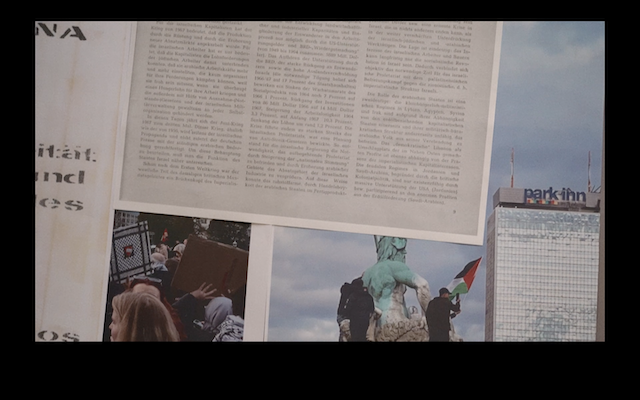
...together with video excerpts selected by the festival team.
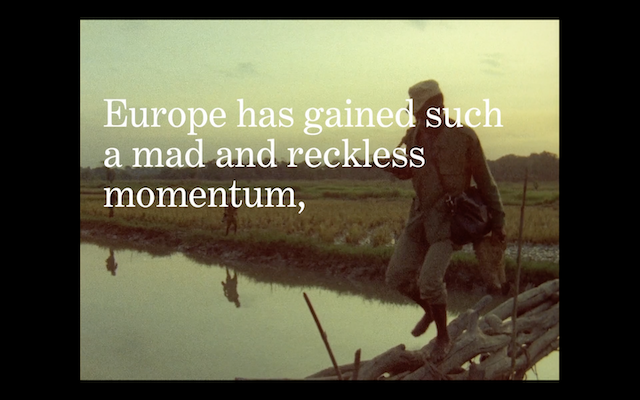
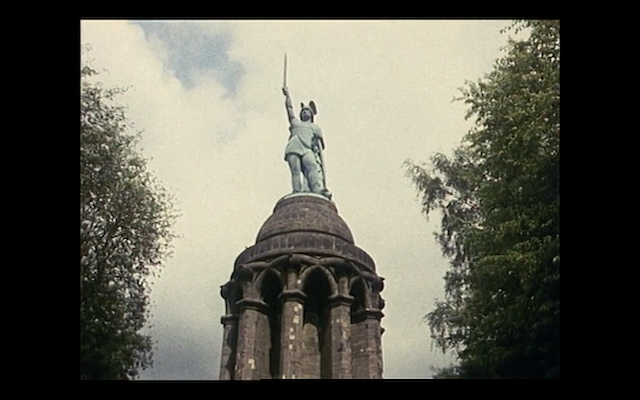
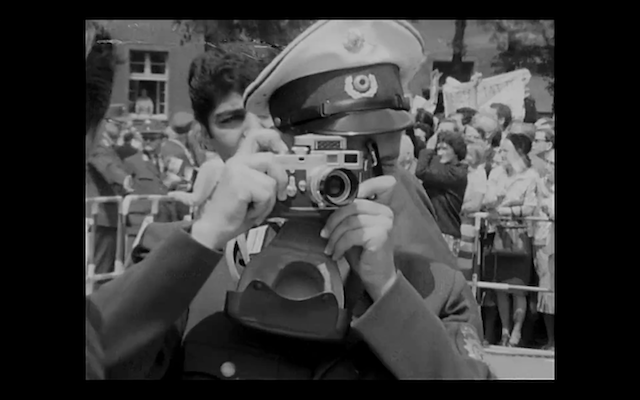
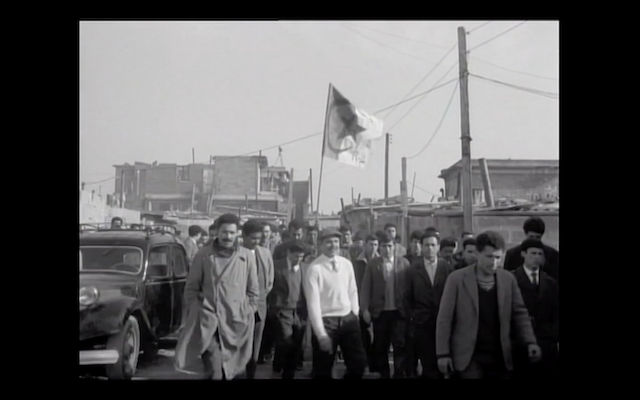
About the panelists
Ahmed Isam is a New Media artist-researcher and author from Khartoum, Sudan, currently based in Berlin. He earned a degree in physics from the University of Khartoum and subsequently pursued studies in graphic design and photography in Cairo. He further specialized in visual communication at Weißensee Kunsthochschule Berlin and media art at the Universität der Künste (UDK) in Berlin. Ahmed's scholarly work engages with immigration, revolutionary processes, decolonial design, and technology. His artistic practice seeks to illuminate these critical issues, employing various media to foster engagement and provocative discourse. He has participated in multiple exhibitions and projects in Khartoum, Cairo, Moscow, Berlin, and beyond. In recent years, Ahmed has focused on repair as a method of resistance and healing. This approach addresses issues related to borders, copyrights, and political stagnation. He explores repair as a cultural practice of the oppressed and its aesthetic dimensions.
Nahed Samour has studied law and Islamic studies at the universities of Bonn, Birzeit/Ramallah, London (SOAS), Berlin (HU), Harvard and Damascus. She was a doctoral fellow at the Max Planck Institute for European Legal History in Frankfurt/Main. She clerked at the Court of Appeals in Berlin, and held a Post Doc position at the Eric Castrén Institute of International Law and Human Rights, Helsinki University, Finland and was Early Career Fellow at the Lichtenberg-Kolleg, Göttingen Institute for Advance Study. She is Junior Faculty at the Harvard Law School, Institute of Global Law and Policy.
Archive of Silence are an independent collective of individuals based in the cultural sphere of Berlin. Our mission is to document the alarming waves of erasure directed at Palestinian advocacy in Germany. Archive of silence serves as a digital platform for all voices that challenge the rigid political mainstream regarding Israel-Palestine, and have consequently been silenced. By collecting instances of silencing, we build a crowdsourced record, determined to hold institutions accountable.
About the filmmakers
Wendelien van Oldenborgh, born 1962 in Rotterdam, develops works in which the cinematic format is used as a methodology for production and as the basic language for various forms of presentation. She often uses the format of a public film shoot, collaborating with participants in different scenarios to co-produce a script and align the work to its final outcome. With these works, which look at the structures that form and impede us, she has participated in large biennials and in smaller dedicated shows.
Cathleen Schuster & Marcel Dickhage (titre provisoire), both born in 1977 have been working together as artists since 2001 and live in Berlin. Their artistic work reveals a keen interest in the contemporary, evolving of dialogues; it could be termed a critical generation of form. Their conceptual approach manifests itself in time based media and text/picture montages.
